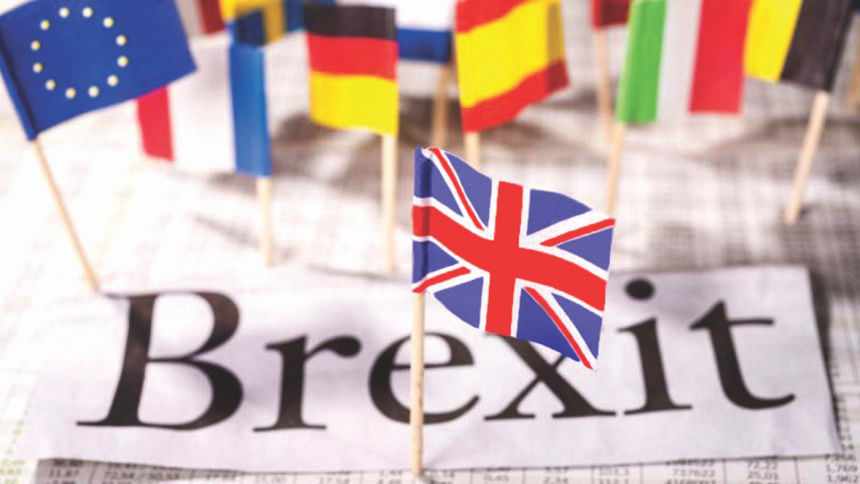Brexit: Causes and Implications

The votes have been counted, and the decision is in: The United Kingdom will leave the European Union. Professional economists have spoken with an unprecedented unanimity that this will make the UK substantially poorer: 196 of them, including 12 Nobel Laureates signed a letter to that effect. President Obama has warned that Brexit will reduce the UK's clout in global affairs. And British prime ministers, past and present from across the party divide, including David Cameron, Gordon Brown, Tony Blair and John Major have all passionately argued for the Kingdom to 'remain'. Why then is it leaving?
As is often the case, when things go wrong in a democracy, the answer lies in myopic political opportunism. Before the 2015 general election, the Conservative Party was divided over the issue of Europe. Rather than providing the leadership that would have been necessary to unite his party, David Cameron chose to appease them by pushing this divisive issue onto the British public by calling a referendum. Thus, Cameron chose to gamble the future of British industry, commerce, and the Kingdom's standing in the international community in an attempt to prolong his tenure as Prime Minister.
Brexit is a remarkably complex issue. Over the decades, the economic, legal and social institutions of the UK and the continent have become intertwined. Leading specialists can only hope to speak intelligently on, at most, one dimension of this interconnectedness. No lay person could possibly fully understand the myriad intricacies involved in extricating their country from such a structure. Yet, on June 23, the British public were asked to deliver a verdict on doing exactly that.
As ever, with public discussions of complex socioeconomic issues, the debate focused on rhetoric and emotion, with no small measure of falsehood. The 'leave' campaign triumphed by expertly honing in on the seething resentment felt by much of middle England, which for over 30 years has been excluded from the prosperity enjoyed by parts of the relatively rich South. The campaign successfully channelled this anger towards immigrants, who had supposedly been allowed to take over British jobs, because England had 'lost control' over its borders. According to this narrative, immigrants were also responsible for the increased pressure on British public services, which in actuality had been facing cutbacks due to ill-conceived austerity measures imposed in the wake of the financial crisis. The campaign also grossly inflated the extent of the UK's financial contributions to the EU.
The implications of the 'leave' vote are staggering in their scope. In the British political sphere, this is a blow to the 'moderate' part the Conservative Party, with David Cameron announcing his resignation. Boris Johnson, the former Mayor of London who headed the 'Leave' campaign, has been emboldened, and will likely take the ruling Conservative Party sharply to the right. But perhaps even more worrying is the fact that the openly xenophobic far-right UK Independence Party, headed by Nigel Farage has finally found a way into the mainstream political discourse. Jeremy Corbyn, the leader of the opposition Labour Party, is facing motions of 'no confidence'.
The Brexit vote may well be the death knell for Great Britain as we know it. Scotland's First Minister, Nicola Sturgeon, has announced that it is 'democratically unacceptable' that Scotland, which voted overwhelmingly to 'remain', will be taken out of the EU. She describes the prospect of another referendum on Scottish independence as "highly likely".
The political ramifications of Brexit resonate far beyond the UK's borders. Much of the European continent is facing a rising tide of far-right nationalist movements, which are likely to also be emboldened by the results of this referendum. Marine Le Pen in France, where polls suggest that over 60 percent of the population are in favour of leaving the EU, will be running for election, promising just such a referendum. And it is difficult to imagine how the European project could survive France's withdrawal.
The economic consequences of Brexit are likely to be no less dramatic. The Pound has fallen to its lowest level since 1985. Forty five percent of the UK's trade was with the EU, and the terms of trade will now have to be re-negotiated. A substantive part of foreign investment into the UK was targeted at accessing the entire European market. London's position as a financial hub depended on the ability to serve Europe. One leading investment bank has already announced that they will be moving their offices and jobs to the continent. While the terms of Brexit are being negotiated, all we can be certain of is prolonged uncertainty, which is always bad for business.
The effect of Brexit on Bangladesh is unclear. We currently enjoy duty free access to the UK through the European single market. Depending on the modalities of Brexit, we may need to negotiate a separate agreement with the UK, on terms that are presently unknown. Some have argued that jilted European migrants in the UK will make room for greater migration from countries like Bangladesh. In the short term, this is unlikely because of the toxic atmosphere the Brexit debate has created around migration. Also, if the British economy shrinks (something it may well do), there will be fewer jobs overall. In the long term, ageing Britain is likely to need a steady inflow of migrant labour. Whether or not Brexit enables Bangladesh to secure a substantive share of this market will depend on Europe's ability to secure preferential treatment of its citizens over ours, when the terms of Brexit are being negotiated.
The writer is a PhD. student in Economics at the University of Sussex in the UK.

 For all latest news, follow The Daily Star's Google News channel.
For all latest news, follow The Daily Star's Google News channel. 



Comments